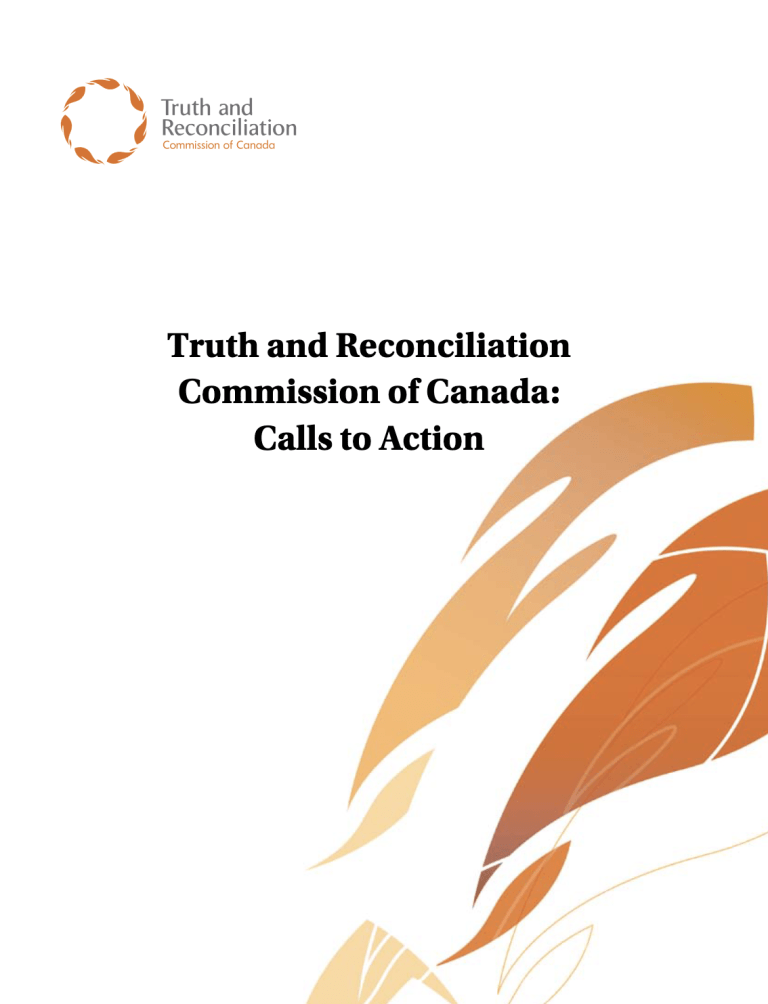95 search results
Legacy
Child welfare
Recommendation 1: We call upon the federal, provincial, territorial, and Aboriginal governments to commit to reducing the number of Aboriginal children in care by:- Monitoring and assessing neglect investigations.
- Providing adequate resources to enable Aboriginal communities and child-welfare organizations to keep Aboriginal families together where it is safe to do so, and to keep children in culturally appropriate environments, regardless of where they reside.
- Ensuring that social workers and others who conduct child-welfare investigations are properly educated and trained about the history and impacts of residential schools.
- Ensuring that social workers and others who conduct child-welfare investigations are properly educated and trained about the potential for Aboriginal communities and families to provide more appropriate solutions to family healing. v. Requiring that all child-welfare decision makers consider the impact of the residential school experience on children and their caregivers.
-
Category and theme:
Audience:
Groups affected:
Legacy
Child welfare
Recommendation 2: We call upon the federal government, in collaboration with the provinces and territories, to prepare and publish annual reports on the number of Aboriginal children (First Nations, Inuit, and Métis) who are in care, compared with non-Aboriginal children, as well as the reasons for apprehension, the total spending on preventive and care services by child-welfare agencies, and the effectiveness of various interventions.-
Category and theme:
Audience:
Groups affected:
Legacy
Child welfare
Recommendation 3: We call upon all levels of government to fully implement Jordan’s Principle.-
Category and theme:
Audience:
Groups affected:
Legacy
Child welfare
Recommendation 4: We call upon the federal government to enact Aboriginal child-welfare legislation that establishes national standards for Aboriginal child apprehension and custody cases and includes principles that:- Affirm the right of Aboriginal governments to establish and maintain their own child-welfare agencies.
- Require all child-welfare agencies and courts to take the residential school legacy into account in their decision making.
- Establish, as an important priority, a requirement that placements of Aboriginal children into temporary and permanent care be culturally appropriate.
-
Category and theme:
Audience:
Groups affected:
Legacy
Child welfare
Recommendation 5: We call upon the federal, provincial, territorial, and Aboriginal governments to develop culturally appropriate parenting programs for Aboriginal families.-
Category and theme:
Audience:
Groups affected:
Legacy
Education
Recommendation 6: We call upon the Government of Canada to repeal Section 43 of the Criminal Code of Canada.-
Category and theme:
Audience:
Groups affected:
Legacy
Education
Recommendation 7: We call upon the federal government to develop with Aboriginal groups a joint strategy to eliminate educational and employment gaps between Aboriginal and non-Aboriginal Canadians.-
Category and theme:
Groups affected:
Legacy
Education
Recommendation 8: We call upon the federal government to eliminate the discrepancy in federal education funding for First Nations children being educated on reserves and those First Nations children being educated off reserves.-
Category and theme:
Audience:
Groups affected:
Legacy
Education
Recommendation 9: We call upon the federal government to prepare and publish annual reports comparing funding for the education of First Nations children on and off reserves, as well as educational and income attainments of Aboriginal peoples in Canada compared with non Aboriginal people-
Category and theme:
Audience:
Groups affected:
Legacy
Education
Recommendation 10: We call on the federal government to draft new Aboriginal education legislation with the full participation and informed consent of Aboriginal peoples. The new legislation would include a commitment to sufficient funding and would incorporate the following principles:- Providing sufficient funding to close identified educational achievement gaps within one generation.
- Improving education attainment levels and success rates.
- Developing culturally appropriate curricula.
- Protecting the right to Aboriginal languages, including the teaching of Aboriginal languages as credit courses.
- Enabling parental and community responsibility, control, and accountability, similar to what parents enjoy in public school systems.
- Enabling parents to fully participate in the education of their children.
- Respecting and honouring Treaty relationships.
-
Category and theme:
Audience:
Groups affected:
